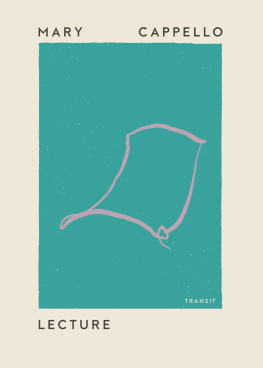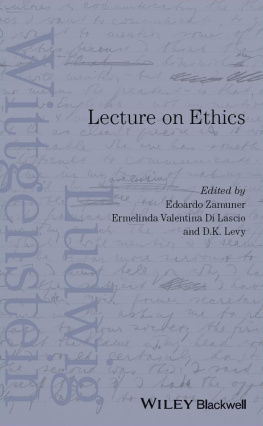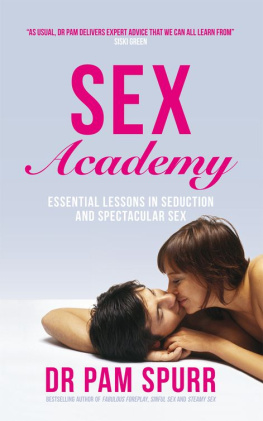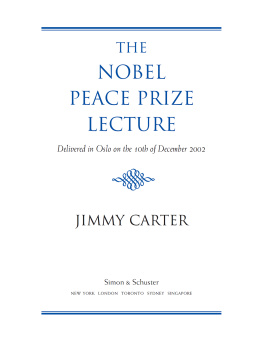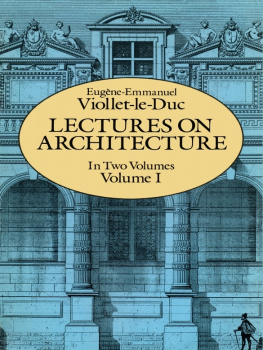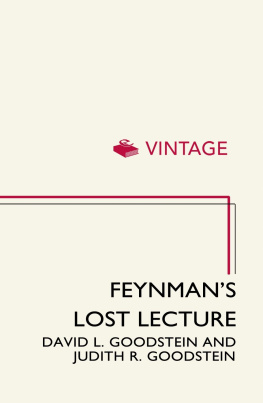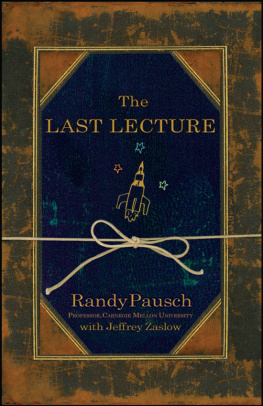Thomas Reid on Religion
Edited by James J.S. Foster with an introduction by Nicholas Wolterstorff
LIBRARY OF SCOTTISH PHILOSOPHY
IMPRINT ACADEMIC
2017 digital version converted and published by
Andrews UK Limited
www.andrewsuk.com
Copyright James J.S. Foster, 2017
The moral rights of the author have been asserted.
No part of this publication may be reproduced in any form without permission, except for the quotation of brief passages in criticism and discussion.
PO Box 200, Exeter EX5 5YX, UK
Full series details:
www.imprint-academic.com/losp
Series Editors Note
The principal purpose of volumes in the Library of Scottish Philosophy is not to provide scholars with accurate editions, but to make the writings of Scottish philosophers accessible to a new generation of modern readers in an attractively produced and competitively priced format. In accordance with this purpose, certain changes have been made to the original texts:
- Spelling and punctuation have been modernized.
- In some cases the selections have been given new titles.
- Some original footnotes and references have not been included.
- Some extracts have been shortened from their original length.
- Quotations from Greek have been transliterated, and passages in languages other than English translated, or omitted altogether.
This volume of Thomas Reids thoughts on religion is rather different to others in the series, including the selection from Reids major philosophical works. Much of it is hitherto unpublished material, most especially the student notes of lectures Reid gave over many years on natural religion. Previously, only a rather poor quality version of one set of notes had been published. Now, thanks principally to a year working in Scottish archives on a Fulbright Scholarship, James Foster has provided students and scholars with a definitive version based on a comparison of all the surviving students lecture notes. By placing them in the context of other relevant selections from Reids writings on religion, both published and unpublished, the volume allows readers for the first time to consider Reids thoughts on religion in the round.
The importance of this volume in the Library of Scottish Philosophy is further marked by the inclusion of a specially commissioned introduction in which the distinguished philosopher of religion and Reid scholar Nicholas Wolterstorff reflects on the contents of the lectures.
Gordon Graham,
Princeton, April 2017
Editors Introduction
James J.S. Foster
Thomas Reid (17101796) was one of the greatest thinkers of the Scottish Enlightenment. In his own time he was seen as an able opponent of the scepticism of David Hume and a stalwart proponent of Common Sense philosophy. His ideas were influential both in his native Scotland and abroad, notably on the French philosopher Victor Cousin (17921867), and the American father of Pragmatism, Charles Sanders Pierce (18391914). Although his star dimmed considerably both in Europe and the United States during the ascendency of Kantian and post-Kantian idealism in the nineteenth and twentieth centuries, he has experienced something of a renaissance in the last forty years. Today he is known chiefly for his epistemology and his defence of first principles - propositions that are necessary for reasoning, but are themselves based not on reason, but on intuitive judgements of evidence. This narrow lens, however, does not reflect the interests of the man, who was widely read and intensely interested in a diverse range of topics including chemistry, optics, astronomy, mathematics, ethics, politics, economics, and farming.
The genesis of this volume may be traced to a Fulbright post-graduate scholarship which I was awarded in 2012 to study at the Research Institute for Irish and Scottish Studies (RIISS) at the University of Aberdeen. At the time, I was completing a doctoral dissertation on Thomas Reids moral philosophy, and found myself frustrated with Reids frequent but oblique references to theological concerns. Piety and religion were clearly important to his ethics, as evidenced by such passages as:
Every man... who believes in God, while he is careful to do his duty, may safely leave the care of his happiness to Him who made him... This shows the strong connection between morality and the principles of natural religion; as the last only can secure a man from the possibility of an apprehension, that he may play the fool by doing his duty.
What religion means for Reid, though, is not immediately clear. I proposed, therefore, to study the extensive set of Reids autograph manuscripts, housed in the University of Aberdeen Library, and the five sets of student notes from Reids lectures held by libraries in Aberdeen, Edinburgh, and Glasgow. These student notes were particularly interesting because none of Reids own notes from his lectures on natural theology, given at Glasgow University, have survived. My hope was twofold: first, to make an accurate transcription of all of the notes from Reids lectures on natural theology; and second, to get a clear picture of Reids religious views. This volume is the result of those labours.
The longest and most complete set of notes from Reids lectures on natural theology at Glasgow was taken by George Baird in the academic year 17791780. Absent a few exceptions - noted below and in the text itself - there is little of interest in the other four sets of student notes on these lectures that is not found in Bairds notes. With the permission of the Mitchell Library, these appear below. As Nicholas Wolterstorff has generously provided an introduction to the Baird notes, I will not comment on them here. It may be helpful, though, to establish the context of these lectures by spending a few pages on Reids religious views in general. Unfortunately, unless further discoveries are made, it appears that no sermons, doctrinal statements, confessions, or treatises on revealed religion by Reid still survive. Our picture of Reids religion must therefore remain incomplete. We may, however, gain some insight into Reids beliefs from his biography and from his allusions to and discussions of religious topics in his voluminous writings.
Reids Life and Faith
Early Life and Education
Thomas Reid was born in 1710 in the town of Strachan in Kincardineshire, Scotland, to Margaret and Rev Lewis Reid, a Church of Scotland minister. We know little of Reids early years, but it is certain that his life was a time of foment among Christian factions in Scotland. In 1715 and 1745, members of the Roman Catholic Stuart dynasty tried to wrest back the thrones of England and Scotland from the Protestant Hanoverians. Although neither attempt was successful, they exacerbated durable tensions between Scottish Presbyterians, who largely resisted the risings, and Scottish Catholics and Episcopalians, many of whom were sympathetic to the Stuarts. Reid not only lived through these uprisings, but felt their effects in his family which, though largely Presbyterian, contained staunch Episcopalians on his mothers side.
At the age of twelve, Reid entered Marischal College in Aberdeen, graduating four years later in the spring of 1726. In October of that same year, he returned to Marishcal to study for the ministry. In 1731, having completed his courses in divinity, Reid was licensed to preach in the Church of Scotland by his home presbytery of Kincardine ONeil. He then served as a supply preacher and as clerk of the presbytery, until, in 1733, he was appointed librarian at Marischal. After three years of service, Reid travelled to Cambridge, London, and Oxford with his friend John Stewart, where they met with several distinguished scholars and visited his uncle, Dr George Reid. Upon his return in 1737, Reid became the parish minister of New Machar, in Aberdeenshire, by the appointment of Kings College, Aberdeen.
Next page

